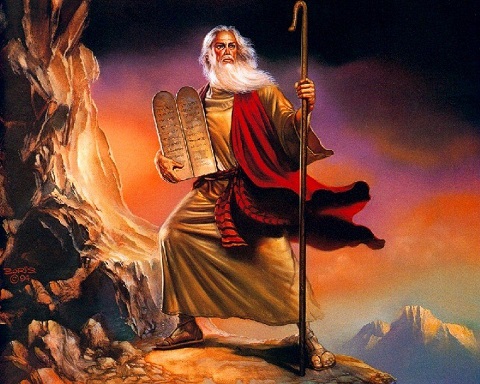Maya comes from the Sanskrit meaning ‘that which is not’ and therefore is ‘illusion’. Different sages and schools of thought have emphasized the illusion of maya in different ways but commonly express the idea that the material or the physical can mislead our soul and thus entangle and entrap it into bondage. Our soul aspires to control and enjoy matter. However, in so doing we end up serving lust, greed, and anger. Often we then redouble our efforts and, compounding mistake upon mistake, fall deeper into illusion or maya. Thus maya can act like a whirlpool which, with growing strength, entraps one more and more, leading to despair. Maya results in accepting that which is temporary as having lasting value, and looking for enduring happiness in this world, which it cannot provide.
The classic Tamil book of wisdom, The Tirukkural, describes Maya and its effect on us in this way:
“If one clings to his attachments, refusing to let go, sorrows will not let go their grip on him.” Tirukkural 35.347–348
The Hebrew Vedas has wisdom literature very similar to Tirukkal. The author of this wisdom poetry was Solomon. He recounts how he experienced Maya and its effects as he lived ‘under the sun’ – that is, living as though only the material has value, and looking for enduring happiness only in this physical world under the path of the sun.
Solomon’s experience of Maya ‘under the sun’
Solomon, an ancient king famous for his wisdom, wrote several poems around 950 BC that are part of the Old Testament in the Bible. In Ecclesiastes, he described all that he did to find satisfaction in life. He wrote:
“I thought in my heart, ‘Come now, I will test you with pleasure to find out what is good.’ …I tried cheering myself with wine, and embracing folly—my mind still guiding me with wisdom. I wanted to see what was worthwhile for men to do under heaven during the few days of their lives.
I undertook great projects: I built houses for myself and planted vineyards. I made gardens and parks and planted all kinds of fruit trees in them. I made reservoirs to water groves of flourishing trees. I bought male and female slaves and had other slaves who were born in my house. I also owned more herds and flocks than anyone … before me. I amassed silver and gold for myself, and the treasure of kings and provinces. I acquired men and women singers, and a harem as well—the delights of the heart of man. I became greater by far than anyone … before me. In all this my wisdom stayed with me….I denied myself nothing my eyes desired; I refused my heart no pleasure. My heart took delight in all my work, and this was the reward for all my labor.” (Ecclesiastes 2:1-10)
Riches, fame, knowledge, projects, women, pleasure, kingdom, career, wine… Solomon had it all – and more of it than anyone else of his day or ours. The smarts of an Einstein, the riches of a Lakshmi Mittal, the social/sexual life of a Bollywood Star, along with a royal pedigree like that of Prince William in the British Royal family – all rolled into one. Who could beat that combination? You would think he, of all people would have been satisfied.
In another of his poems, Song of Songs, which is also in the Bible, he records an erotic, red-hot love affair that he was having – the very thing that seems most likely to provide life-long satisfaction. The complete poem is here. But below is a portion of the poem of the love exchange between him and his lover
Song of Songs extract
He
9 I liken you, my darling, to a mare
among Pharaoh’s chariot horses.
10 Your cheeks are beautiful with earrings,
your neck with strings of jewels.
11 We will make you earrings of gold,
studded with silver.
She
12 While the king was at his table,
my perfume spread its fragrance.
13 My beloved is to me a sachet of myrrh
resting between my breasts.
14 My beloved is to me a cluster of henna blossoms
from the vineyards of En Gedi.
He
15 How beautiful you are, my darling!
Oh, how beautiful!
Your eyes are doves.
She
16 How handsome you are, my beloved!
Oh, how charming!
And our bed is verdant.
He
17 The beams of our house are cedars;
our rafters are firs.
She
3 Like an apple tree among the trees of the forest
is my beloved among the young men.
I delight to sit in his shade,
and his fruit is sweet to my taste.
4 Let him lead me to the banquet hall,
and let his banner over me be love.
5 Strengthen me with raisins,
refresh me with apples,
for I am faint with love.
6 His left arm is under my head,
and his right arm embraces me.
7 Daughters of Jerusalem, I charge you
by the gazelles and by the does of the field:
Do not arouse or awaken love
until it so desires. (Song of Songs 1:9 – 2:7)
This poem, almost 3000 years old, has the romantic intensity of the best of the Bollywood love films. The Bible in fact records that with his immense wealth he obtained 700 mistresses! That is much more than the most prolific lovers of Bollywood or Hollywood will ever have. So you would think that with all that love he would be satisfied. But even with all that love, all the riches, all the fame and the wisdom – he concluded:
“’Meaningless! Meaningless!” says the Teacher. ‘Utterly meaningless! Everything is meaningless.’ … I … devoted myself to study and to explore by wisdom all that is done under heaven. What a heavy burden God has laid on men! I have seen all the things that are done under the sun; all of them are meaningless, a chasing after the wind.” (Ecclesiastes 1:1-14)
“…when I surveyed all that my hands had done and what I had toiled to achieve everything was meaningless, a chasing after the wind; nothing was gained under the sun… So my heart began to despair over all my toilsome labor under the sun.… This too is meaningless and a great misfortune. What does a man get for all the toil and anxious striving with which he labors under the sun?… This too is meaningless.” (Ecclesiastes 2:11-23)
The promise of pleasure, wealth, work, progress, romantic love to ultimately satisfy was shown by him to be an illusion. But today this is the same message that you and I still hear as the sure road to satisfaction. Solomon’s poetry has already told us that he had not been able to find satisfaction in these ways.
Solomon continued his poetry to reflect on death as well as life:
Man’s fate is like that of the animals; the same fate awaits them both: As one dies, so dies the other. All have the same breath; man has no advantage over the animal. Everything is meaningless. All go to the same place; all come from dust, and to dust all return. 21 Who knows if the spirit of man rises upward and if the spirit of the animal goes down into the earth?” (Ecclesiastes 3:19-21)
All share a common destiny—the righteous and the wicked, the good and the bad, the clean and the unclean, those who offer sacrifices and those who do not. As it is with the good man, so with the sinner; as it is with those who take oaths, so with those who are afraid to take them. This is the evil in everything that happens under the sun: The same destiny overtakes all. … they join the dead. Anyone who is among the living has hope—even a live dog is better off than a dead lion! For the living know that they will die, but the dead know nothing; they have no further reward, and even the memory of them is forgotten. (Ecclesiastes 9:2-5)
Why would the Bible, a Holy book, contain poems about the pursuit of wealth and love – the very things we do not associate with Holiness? Most of us expect Holy Books to discuss ascetism, dharma and moral precepts to live by. And why does Solomon in the Bible write about death in such a final and pessimistic way?
The path taken by Solomon, so commonly pursued all over the world, was to live for self, creating whatever meaning, pleasure or ideals that he chose to pursue. But that end was not good for Solomon – the satisfaction was temporary and illusion. His poems are in the Bible like a big warning sign – “Do not Go here – it will disappoint you!” Since almost all of us will try to go down the same path that Solomon took we are wise if we listen to him.
The Gospel – Answering Solomon’s Poems
Jesus Christ (Yeshu Satsang) is probably the most well-known person written about in the Bible. He too made statements about life. In fact he said
“… I have come that they may have life and have it to the full” (John 10:10)
“Come to me, all you who are weary and burdened, and I will give you rest. Take my yoke upon you and learn from me, for I am gentle and humble in heart, and you will find rest for your souls. For my yoke is easy and my burden is light.” (Matthew 11:28-30)
When Jesus says this he gives an answer to the futility and hopelessness written about by Solomon in his poems. Maybe, just maybe, here is an answer to the dead-end of Solomon’s path. After all, gospel literally means ‘good news’. Is the Gospel really good news? To answer that we need an informed understanding of the Gospel. Also we need to examine the claims of the Gospel – to think critically about the Gospel, without just being a mindless critic.
As I share in my story, this was a journey that I took. The articles in this website are here so you too can begin to explore. The incarnation of Jesus is a good place to start.



